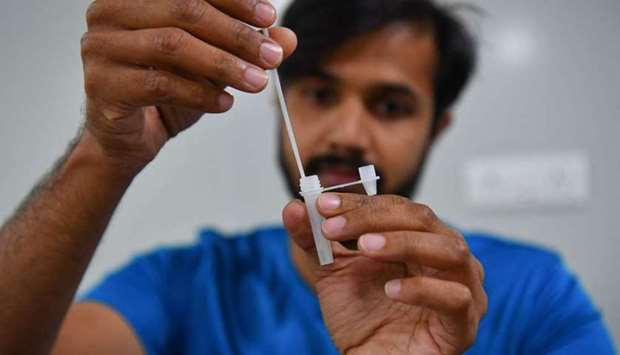Indian start-up Mylab Discovery Solutions hopes that its inexpensive Covid-19 home test kit -- the country's first -- will help the massive South Asian nation better track the pandemic's spread among its 1.3-billion people.
CoviSelf was launched earlier this month and is the first home testing kit to be approved in India, which is slowly emerging from a brutal second wave that overwhelmed its hospitals and crematoriums, with almost 30 million infected so far and over 350,000 dead.But many experts suspect that the real numbers are much higher, blaming insufficient testing and inaccurate recording of the cause of patient deaths.
The start-up, which also makes PCR tests to detect HIV infections, says that widespread access to CoviSelf -- sold for 250 rupees ($3.40) -- would reduce pressure on overburdened laboratories and improve infection tracking.
The kit uses a nasal swab and a QR code to connect to a mobile app which reveals results in 15 minutes, and sends the details to the Indian Council for Medical Research, the scientific agency leading the government's response.
"It has been designed so people can do it at home. So the contents of the kit are simple, the way to dispose of it is simple, the way to perform it is simple," said Shrikant Pawar, Head of Serology & Microbiome at Mylab.
At the firm's factory in the hillside resort town of Lonavla in western India, masked and gloved workers ran detailed quality checks on the kit's components before shipping them out to pharmacies across the country.
"Our current production capacity is 10 million tests in a week", Pawar told AFP, with the kit also sold on Flipkart, a Walmart-backed online behemoth.
"If the market demand goes high, we will be able to cater to more tests a week and yes, we are also planning to go overseas, so it will be available in international markets as well."
But with the kit only accessible to smartphone users, its impact may be limited, especially as the pandemic makes deeper forays into rural India, where mobile networks are weak and internet penetration remains low.

